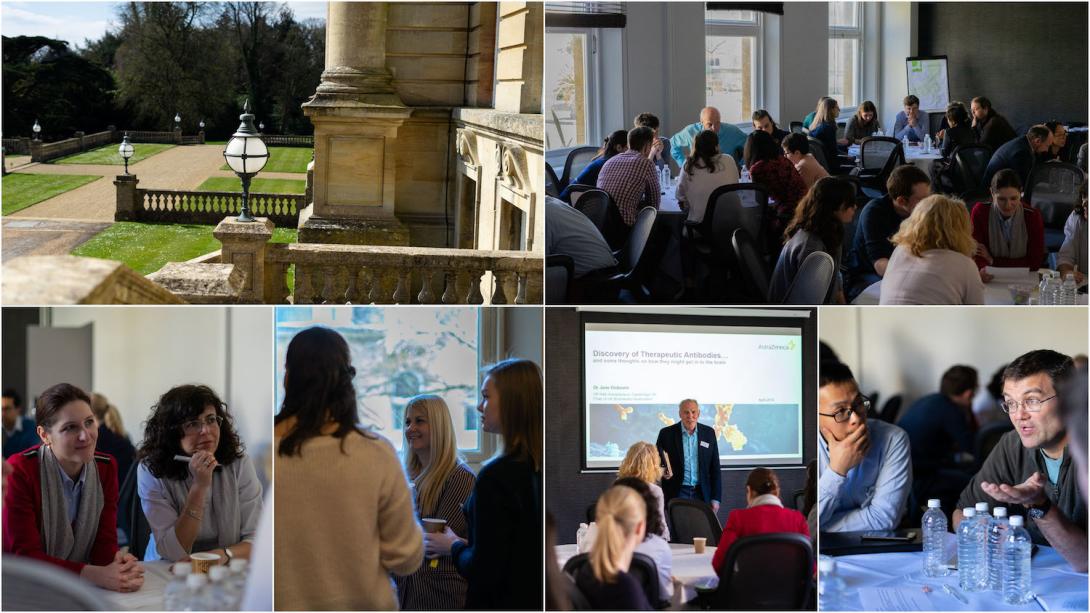As research into dementia has accelerated over recent years and data from clinical trials grows, one clear conclusion to be drawn is that the causes of the diseases associated with dementia are not straightforward. From signalling pathways to systems, the biology behind the scenes spans multiple research areas, which in turn requires diverse disciplines and expertise to aid investigation.
To meet the challenge of bringing together skill sets and common interests across the institute’s dispersed network, we have developed the official UK DRI research themes. To learn more, we spoke to Research Theme Project Manager at HQ, Dr Sarmi Sri.
Hi Sarmi, can you tell us about your background and your new role?
I developed a keen interest in neurodegenerative disease during my Master’s in Neuroscience at King’s College London and subsequent PhD studying cognitive and synaptic dysfunction in Alzheimer’s disease at the University of Southampton. I then moved to industry, where I worked as a Research Associate at Eli Lilly UK, managing a number of early phase drug discovery projects within the Pain Discovery group. I’m really excited to start working at the UK DRI, where I am Research Theme Project Manager for the Neuroinflammation and Vascular themes.
In essence, my role is to bring together researchers from across all the UK DRI centres and promote a collaborative approach to addressing major scientific questions in dementia research. I believe the UK DRI’s goal of collaborative research is the way forward to help fill the knowledge gap, ensuring that there is transparency in the work done whilst sharing results and resources to allow high quality research.
What is the structure and purpose of the official UK DRI themes?
The UK DRI is composed of seven centres spread across the UK, however, there are several common research areas or ‘themes’ shared by researchers across these locations. The cross-centre themes aim to unite researchers who share these similar research interests and promote collaboration through sharing of knowledge, ideas, resources, best practice and data.
Each theme is allocated a budget and administrative support, and, led by the research theme lead, aims to address key questions within the field with ambitious and exciting cross-centre research projects and events.
Your role will be covering Neuroinflammation and Vascular biology. Why are these important subjects?
Both these themes are extremely relevant to our understanding of how dementia develops. From a genetics point of view, a large proportion of risk genes associated with Alzheimer’s disease are part of neuroinflammatory pathways, and the epidemiological data suggests the involvement of vascular dysfunction in both Alzheimer’s disease and vascular dementia.
The two themes also go hand in hand, as glial cells have been implicated in vascular dysfunction, and a breakdown of the blood-brain barrier leads to infiltration of inflammatory agents from the blood to the brain. We expect a lot of crossover in research interests between the two themes and hope to tease out key understanding that may lead to therapeutics.
There are a number of themes currently being proposed and the final details of these should be announced shortly. Amongst them is the ‘Synapse’ theme. In the future we expect to see more themes emerging, each addressing unique questions within the dementia field.
What activities have already occurred for these themes and what is planned?
The cross-centre themes programme is relatively new but a two-day workshop on neuroinflammation for early career researchers and an iPSC-derived microglia meeting already took place last year. Both themes were also discussed at the UK DRI’s internal conference in October 2019.
Going forward, we aim to hold strategic Group Leader meetings on both themes to identify big initiatives that the UK DRI could lead on and opportunities for resource sharing. Planning for smaller events is also underway, such as a workshop for early career researchers on the blood-brain barrier, as part of the Vascular theme.

A 2-day workshop for early career researchers took place in April last year
What’s involved when joining a theme community?
As part of a theme, you will have the opportunity to join regular meetings and events to discuss work being undertaken around UK DRI and the best approaches to answering key questions related to the theme area. Collaboration is at the heart of UK DRI and being part of a theme will also strengthen applications for available funding. I think the opportunities that the themes present to interact with colleagues, sharing techniques and resources, is hugely beneficial to anyone involved in UK DRI.
Anyone interested in being part of the Neuroinflammation and/or Vascular theme can contact me directly (s.sri@ucl.ac.uk). We are also working on a themes page for the website where further information will be available. This will include an updated list of official UK DRI themes, groups involved and the contact details of the theme’s Project Manager.
If you feel there is a research area that could benefit from being a separate theme within the UK DRI, please see the guidance notes on how to propose a new theme or contact our Science Review Manager, Aoife Kiely, for more details.
Article published: 04 May 2020
